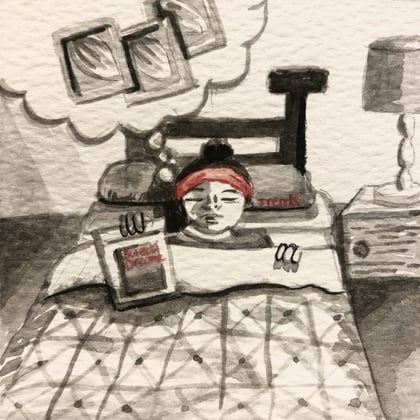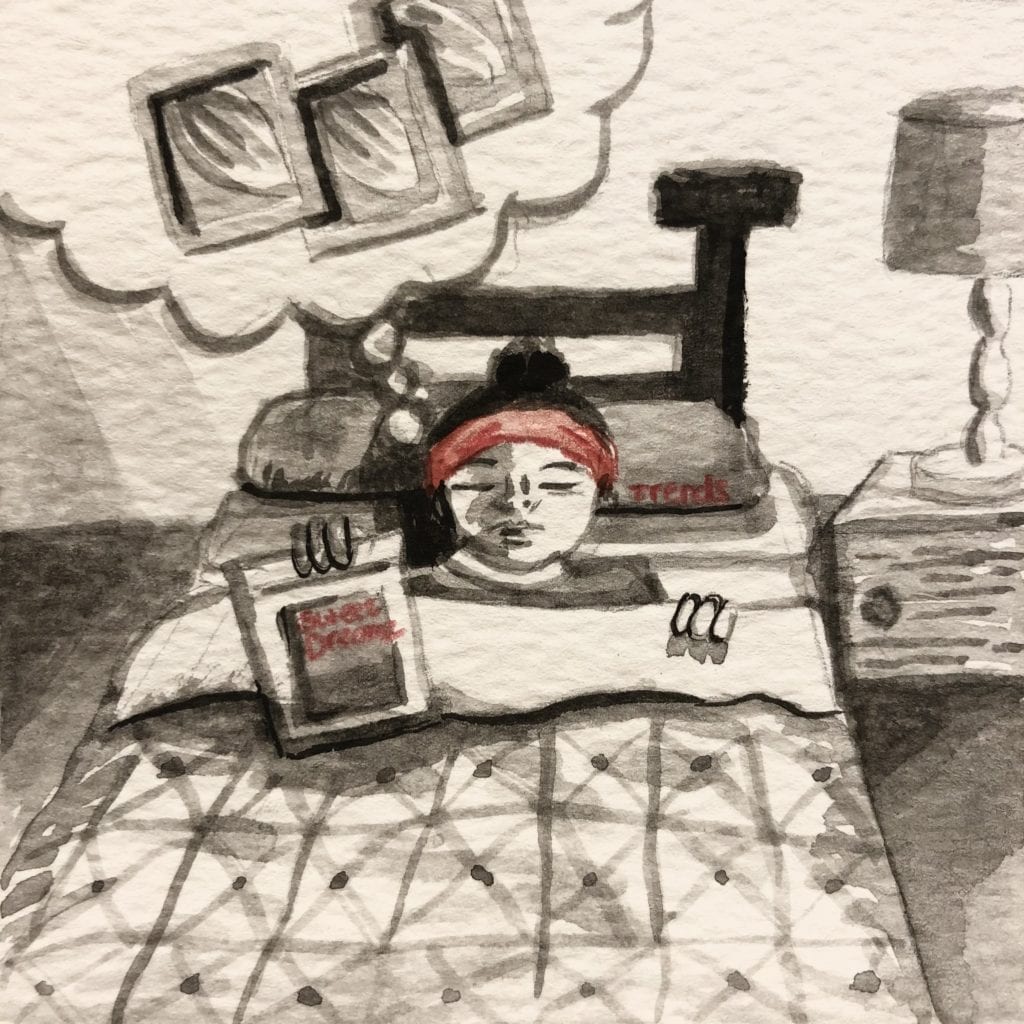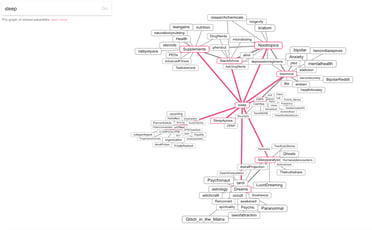nlopchantamang.com
Signal Update and New Insights: Sleep Industry
Amy McMillen

Source: Google Trends
Back in February, we published a deep dive across the sleep industry, citing how sleep disorders have become a public health epidemic. Since then, the pandemic has thrown routines out of whack and raised stress levels all around, fueling this epidemic even further.
Trendster Marjan Soleimanieh read the article and was inspired to start a business with a co-worker who suffered from chronic sleep issues. She was eating a piece of chocolate one night before bed when the idea came to her: sleep chocolate.

She's not the only one who has woken up to innovative sleep aids. Over the course of the year, search interest for new melatonin players including gummies and vapes have exploded, as well as blue light blocking glasses, which are touted to increase melatonin.
We caught up with Soleimanieh after she posted in the Facebook group about launching her sleep chocolate company, Tutia.
Not only did she share the ride of learning how to make and market chocolate over the last few months, but she also provided a window into new opportunities she sees.
Niche Target Markets
Because of the premium price point of $29 per pack (which includes 20 pieces), Soleimanieh began by marketing Tutia to tech workers like herself and older women with high spending power (see our report on age tech). What was unexpected, however, is the segment of construction workers that provided the most loyal, repeat customers.
This finding is consistent with the Sleep Foundation reporting that construction workers could have higher prevalence of sleep disturbances due to musculoskeletal pain from manual labor, a leading reason for why this occupation has the highest rates of suicide (You can read how the construction industry is long due for other improvements here.)
Other higher-activity jobs that could benefit from sleep aids include military personnel and firefighters (listed as the top 2 most stressful jobs in the US).
Sleep Education Through Influencers
After spending dozens of hours scouting on social media, Soleimanieh sees a need for more specific sleep content (beyond TikTok trends of watching people sleep).
"There are a ton of skincare influencers, not enough on sleep hygiene,” she told us. “Even if it's to tell you to put your phone away, we need more bite-sized education around sleep."
On Instagram, the majority of the 106k posts under #sleeptips and the 38.3k posts under #sleephygiene are from overall wellness influencers, not sleep experts directly. Compared to the 3.6m posts under #insomnia, there's a definite gap for specialists.
She admits the irony, but sees tech as part of the solution, such as a modern night-time radio show or more bedtime stories (Calm's Sleep Stories have been listened to 250m+ times, as of July 2020).

Leave a Comment